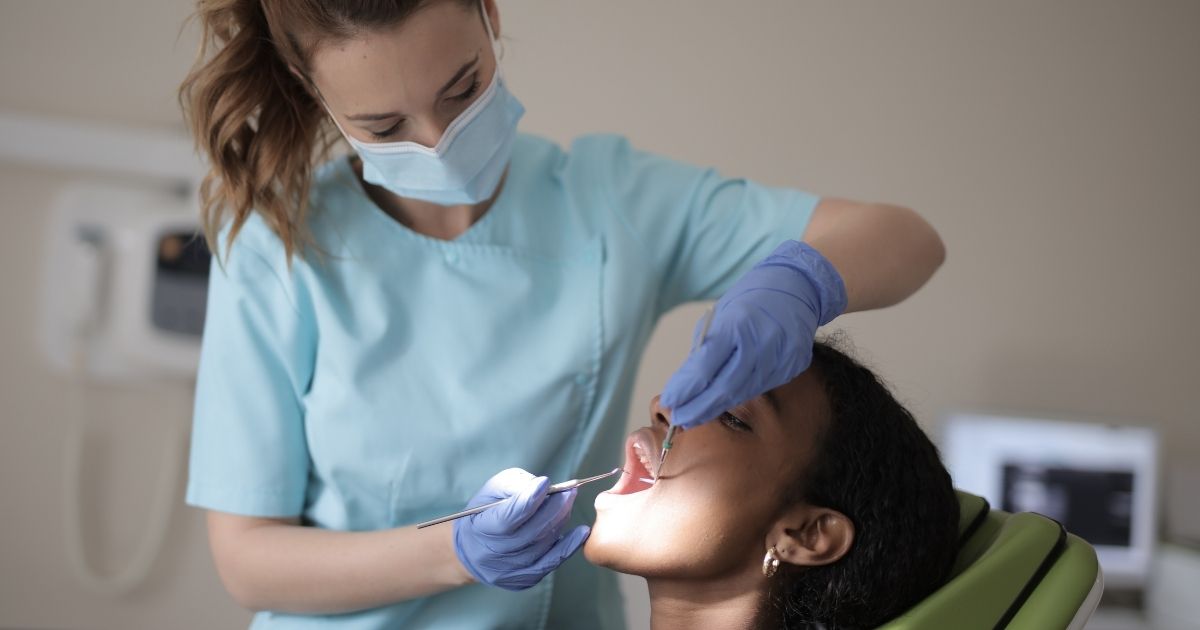If you notice a lump, growth, or sore in your mouth that does not seem to heal, you may have an oral cyst or a tumor. While hearing the word “tumor” may be nerve-wracking, these growths are usually benign. However, depending on the size and severity of the growth, they can cause significant damage to the surrounding bone, tissue, and teeth.
The mouth and jaw is the only area in the body that is made up of bone, muscles, glands, nerves, blood vessels, taste buds, and mucosa. These structures can produce benign and malignant cells, which makes the mouth vulnerable to abnormal growths, including cysts and tumors. The following are some of the most common causes of oral cysts and tumors:
- Regular tobacco or alcohol use.
- Poor oral hygiene.
- Poor nutrition.
- Irritation caused by poorly-fitting dentures.
- Rough surfaces on teeth.
There is a range of treatment options for oral cysts and tumors, and a skilled oral surgeon will recommend the best option based on a range of factors, including your symptoms and results from any diagnostic tests performed. Based on the type of cyst or tumor you have and the growth stage, treatment may include medication, surgically removing or altering the growth, dental implants, and therapy.
What Symptoms Are Associated With Oral Cysts and Tumors?
Any time you are experiencing pain, or any abnormality in and around your teeth, gums, jaw, or face, it could be a symptom of a cyst or a tumor. If you are experiencing any of the following symptoms, you are urged to make an appointment with a doctor and an experienced oral surgeon:
- A sore that bleeds easily and does not heal.
- Thickening of the tissue.
- Chronic sore throat or hoarseness.
- Difficulty chewing or swallowing.
- White and gray patch.
- Reddish patches.
What Are Examples of Oral Cysts and Tumors?
There are several different types of oral cysts and tumors, each of which has other symptoms and treatment options. The following are examples of common oral tumors and cysts:
- Ameloblastoma: This rare tumor begins in the protective enamel cells. It usually develops in the jaw near the molars. An aggressive form of this tumor can cause large tumors to form in the jawbone. Surgery is generally required and will reduce the likelihood of recurrence.
- Central giant cell granuloma: These are benign lesions that grow from bone cells. They usually occur in the front lower jaw. Once they start to grow, they can destroy bone and cause extreme pain. They can recur, even after surgical treatment.
- Dentigerous cyst: This originates from the tissue surrounding a tooth before it comes in. It is the most common type of cyst.
- Odontogenic keratocyst: This is a tumor-like cyst that tends to recur after surgical treatment. While slow-growing, it can damage the teeth and jaw if left untreated.
- Odontogenic myxoma: This benign tumor is rare and slow-growing but can become large and invade the jaw and surrounding tissue. They can also recur after surgical treatment.
- Odontoma: This is the most common type of odontogenic tumor. They often have no symptoms but can interfere with tooth development. Often, they resemble an oddly shaped tooth.
South Jersey Oral Surgeons at Lanzi Burke Oral & Maxillofacial Surgeons Treat Patients Who Have Oral Cysts and Tumors
If you have been diagnosed with an oral cyst or tumor, one of our skilled South Jersey oral surgeons at Lanzi Burke Oral & Maxillofacial Surgeons will discuss the treatment options. We will recommend the course of treatment tailored to your specific needs. Call us at 856-582-4222 or contact us online to schedule a consultation. Located in Washington Township, Haddonfield, and Woolwich Township, New Jersey, we serve patients throughout South Jersey.


